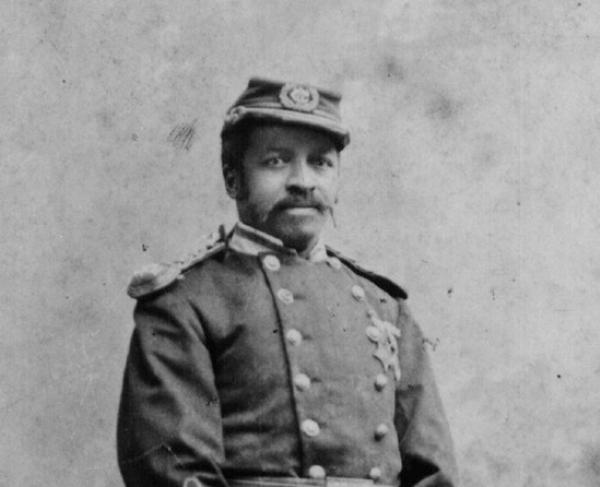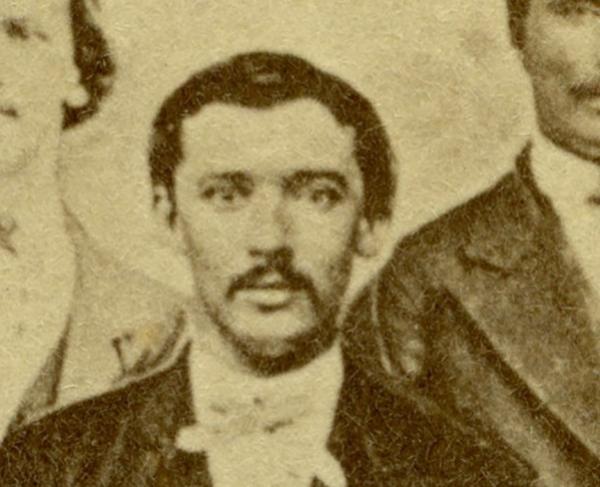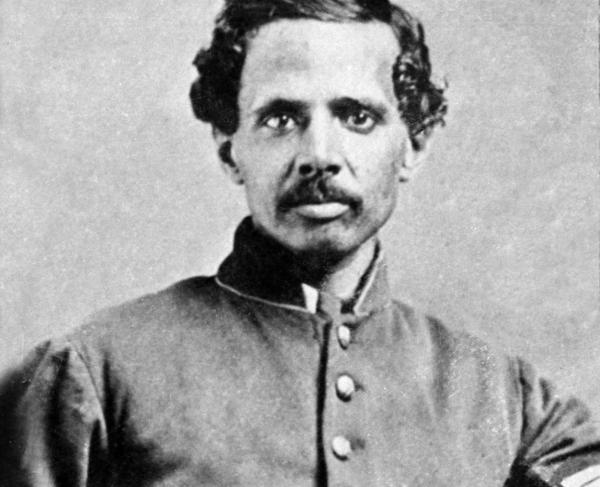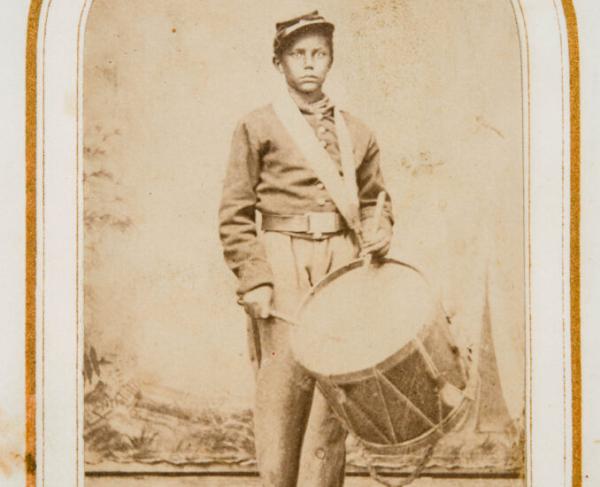Christian Fleetwood

Twenty-five African Americans received the Medal of Honor during the Civil War, 14 of them at the Battle of Chaffin's Farm, just outside of Richmond, Virginia, in September 1864. One of those brave men was Christian Fleetwood, a free black from Baltimore, Maryland.
Fleetwood was born on July 21, 1840 in Baltimore to Charles and Anna Marie Fleetwood, both free persons of color. He received an excellent early education from a wealthy sugar merchant, John Brune. Later, Fleetwood continued his studies under the secretary of the Maryland Colonization Society, an organization promoting the immigration of free blacks to Liberia and Sierra Leone. In 1860, Fleetwood graduated from Ashmun Institute in Oxford, Pennsylvania. He went into publishing with several other men, founding the Lyceum Observer in Baltimore, which was among the first African American newspapers in the South.
In August 1863, Fleetwood enlisted in the 4th Regiment United States Colored Infantry. Being so well-educated, he received an immediate promotion to the rank of Sergeant Major. The regiment saw most of its action in the Richmond-Petersburg campaign, taking part in the Second Battle of Petersburg in June 1864 and the infamous Battle of the Crater one month later in July.
On September 29, 1864, Fleetwood and his regiment fought in the Battle of Chaffin's Farm on the outskirts of Richmond. The 4th Regiment was ordered to charge the Confederate fortifications, with Fleetwood leading the left flank. As the men ran forward into the fierce fire of the enemy, one of the color bearers went down. Sergeant Alfred Hilton, himself carrying a flag, seized the second flag and continued to advance. He was soon wounded, but before either of the flags he was carrying could touch the ground, Fleetwood and another soldier ran forward to catch them. The Confederates kept up a heavy fire, but Fleetwood continued to carry the American flag closer to the fortifications. It soon became apparent to the regiment that they could not continue forward, and they fell back to the reserve line. Fleetwood still brandished the flag, rallying the men to continue the fight.
Six months later, on April 6, 1865, Christian Fleetwood was awarded his country's highest decoration—the Medal of Honor. The citation reads: "He seized the colors, after 2 color bearers had been shot down, and bore them nobly through the fight." In addition to this honor, every officer of the 4th Regiment sent a petition to Secretary of War Edwin Stanton to have Fleetwood commissioned an officer. Unfortunately, Stanton did not recommend the appointment, and Fleetwood continued his service as a Sergeant Major. He was honorably discharged on May 4, 1866.
After the war, Fleetwood married and worked in several government positions in the Freedmen's Bank and War Department in Washington, DC. He continued his involvement with the army and organized a battalion of DC National Guardsmen, which he commanded as a Major. In 1888, he helped to organize the Colored High School Cadet Corps of the District of Columbia, which established a high standard of military service for African American soldiers.
Fleetwood never returned to active military service, and in later years indulged in his love of music, serving as choirmaster at four churches in the Washington, DC area. He died on September 28, 1914, almost 50 years to the day of when he was awarded the Medal of Honor. The medal is now in the collection of the Smithsonian's National Museum of American History.
Help raise the $429,500 to save nearly 210 acres of hallowed ground in Virginia. Any contribution you are able to make will be multiplied by a factor...
Related Battles
4,150
1,750


